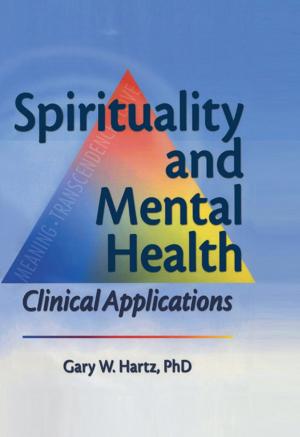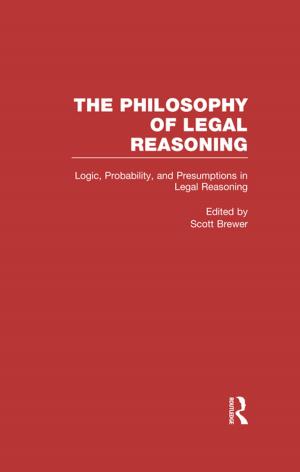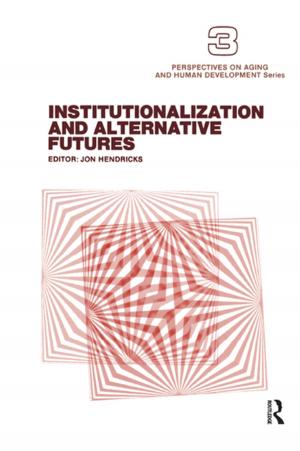Assessing Children in the Urban Community
Nonfiction, Health & Well Being, Psychology, Testing & Measurement, Clinical Psychology| Author: | ISBN: | 9781317681076 | |
| Publisher: | Taylor and Francis | Publication: | December 22, 2015 |
| Imprint: | Routledge | Language: | English |
| Author: | |
| ISBN: | 9781317681076 |
| Publisher: | Taylor and Francis |
| Publication: | December 22, 2015 |
| Imprint: | Routledge |
| Language: | English |
This book illuminates the process of child psychological assessment in community psychology through discussion, theory, and case studies of collaborative, systemic treatment of children and their parents. "Assessing Children in the Urban Community" presents a semi-structured form of collaborative psychological assessment, designed to help clients gain new insights and make changes in their lives. Traditional psychological assessment focuses on diagnosis and treatment but has been slow to include contextual elements, particularly social and cultural contexts into the assessment process and psychological report.
Clients receiving services in a community psychology clinic pay for their treatment through state welfare coverage. They cannot choose their providers, they cannot always determine the length and course of their mental health care, they often do not have access to transportation to begin services, to continue them, or to take advantage of follow-up recommendations. The Therapeutic Assessment model is particularly adaptable to community psychology because it allows maximum interaction in the assessment process and promotes participation and collaboration in an often dis-empowering system.
This book will be relevant to clinical psychologists, community psychologists, social workers, family therapists, graduate students in psychology, social work, marriage and family therapists, and counseling programs.
This book illuminates the process of child psychological assessment in community psychology through discussion, theory, and case studies of collaborative, systemic treatment of children and their parents. "Assessing Children in the Urban Community" presents a semi-structured form of collaborative psychological assessment, designed to help clients gain new insights and make changes in their lives. Traditional psychological assessment focuses on diagnosis and treatment but has been slow to include contextual elements, particularly social and cultural contexts into the assessment process and psychological report.
Clients receiving services in a community psychology clinic pay for their treatment through state welfare coverage. They cannot choose their providers, they cannot always determine the length and course of their mental health care, they often do not have access to transportation to begin services, to continue them, or to take advantage of follow-up recommendations. The Therapeutic Assessment model is particularly adaptable to community psychology because it allows maximum interaction in the assessment process and promotes participation and collaboration in an often dis-empowering system.
This book will be relevant to clinical psychologists, community psychologists, social workers, family therapists, graduate students in psychology, social work, marriage and family therapists, and counseling programs.















